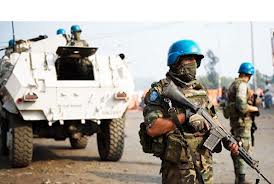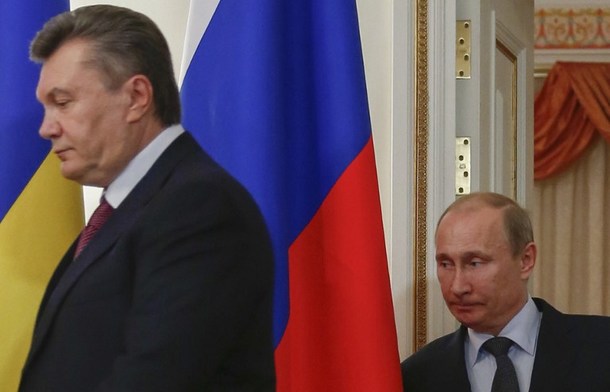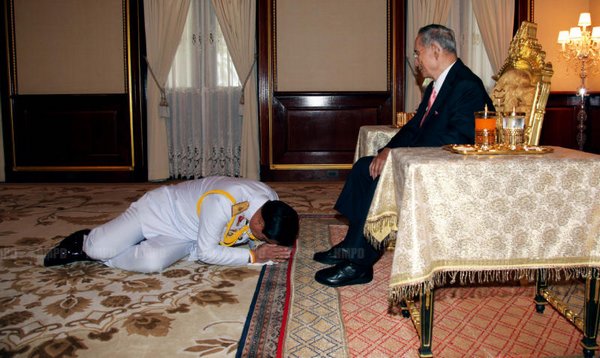The United Nations Mission in the Democratic Republic of the Congo (MONUSCO) has adopted, for the first time, an offensive strategy in the conflict-torn African country. The mission threatened the use of force against rebels in the eastern city of Goma, but questions remain about the effectiveness of this approach. While motivated by a need for a new approach to the conflict, peacekeeping interventions need to consider the wider political and regional security implications of such a strategy.
A Moral Obligation, a Strategic Imperative
The recent change in the posture of MONUSCO in authorizing peacekeepers to use force against M23 rebels in the DRC represents a changing attitude to humanitarian intervention, giving peacekeepers larger latitude to use force against hostile fighters. The turning point in current policy came after rebels overran Goma, a city of close to 1 million, last year without resistance from UN forces. The inability of peacekeepers to prevent the taking of the city sparked a re-evaluation of the mission’s mandate.
[captionpix align=”right” theme=”elegant” width=”300″ imgsrc=”http://www.hrw.org/sites/default/files/media/images/photographs/2011_DRC_FabienMutomb.jpg” captiontext=”A Congolese army soldier stamps on Fabien Mutomb, provincial vice-president of the Union for Democracy and Social Progress (UDPS), as the army and police break-up a peaceful protest in Lubumbashi.”]
On the one hand, it’s clear the international community needed to act decisively. Since emerging from colonialism and authoritarian rule, the DRC has gone through repeated stages of conflict. The country was called the ‘rape capital of the world’ in 2010 by Margot Wallström, UN Special Representative for Sexual Violence in Conflict. Millions of civilians have perished and millions more have been displaced by the current conflict.
Despite the moral imperative to act, there are few options for peacekeepers. The DRC’s security forces have thus far been unable to resolve the situation, and in fact, may be a major part of the problem. They are unreliable, have been accused of drunkenness and looting, and are even suspected of mass rape.
Indirect methods used so far to tackle the conflict have also been ineffectual. Political solutions like negotiations between rebels and the government were either broken or never implemented. The government of neighbouring Rwanda allegedly impeded the peace process and even recruited for the rebels. Efforts to cut off rebels’ funding, modeled after the ‘blood diamond’ campaigns of the early 2000s, have failed to stop rebels from preying on the local population to sustain themselves.
This left little apparent choice other than an unprecedented use of force against rebels, driven by a moral obligation to protect civilians and a strategic imperative to find a new approach to the conflict. Yet this strategy entails supporting government forces that are potentially as guilty of atrocities as the rebels themselves. Furthermore, unless efforts are made to address conflicts elsewhere in the region at the same time, such an approach will only threaten regional stability.
Selective Intervention – Shifting the Burden
While a first for the UN, this forceful approach echoes the methods used in Mali in recent months, where rebels captured close to half the country before a French-led intervention pushed them back. At the same time, it lies in stark contrast to the Central African Republic, where Seleka rebels easily overran the government earlier this year. The inconsistency in intervention policies risks worsening the regional security situation by driving rebel forces out of countries with interventions, into neighbouring countries whose situations have been ignored.
Familiar tactics and groups from neighbouring conflicts have found themselves in the Central African Republic. Joseph Kony’s infamous Lord’s Resistance Army, known for its practice of hacking off limbs in Uganda, is reportedly moving its operations into the lawless country. In the same way, the militias that were pushed out of Rwanda following the genocide were a major factor in the outbreak of war in the DRC.
In the past, defeating rebels or paramilitaries with force in one country has often led them to move next door, threatening regional stability. A peacekeeping policy of selective, forceful intervention risks pushing rebels into the DRC’s neighbours, countries which include Burundi, Uganda, Rwanda, Tanzania and the world’s youngest state – South Sudan. These states, already wrestling with the challenges of genocidal pasts, state-building, underdevelopment and managing large refugee populations, cannot afford a conflict.
One way to address this is to broaden the geographical scope of UN peacekeeping missions. Normally missions are confined to a specific country, which prevents them from addressing conflicts that do not respect political borders. Alternatively, governments could end their practice of only intervening in some states (DRC, Mali) while neglecting others (Central African Republic).
Taking Sides and Passing the Problem
The path MONUSCO has chosen to take may be motivated by a moral case to intervene and an apparent strategic imperative, but the implications of this approach need to be considered extensively. Assisting government forces accused of preying on civilians amounts to supporting one side in a conflict where both parties may be equally guilty. Moreover, it could push armed elements out of the DRC into nearby countries, shifting the burden of civil war onto the DRC’s neighbours. If MONUSCO and other peacekeeping interventions are to achieve their mandates, they must adopt a regional strategy as well.




